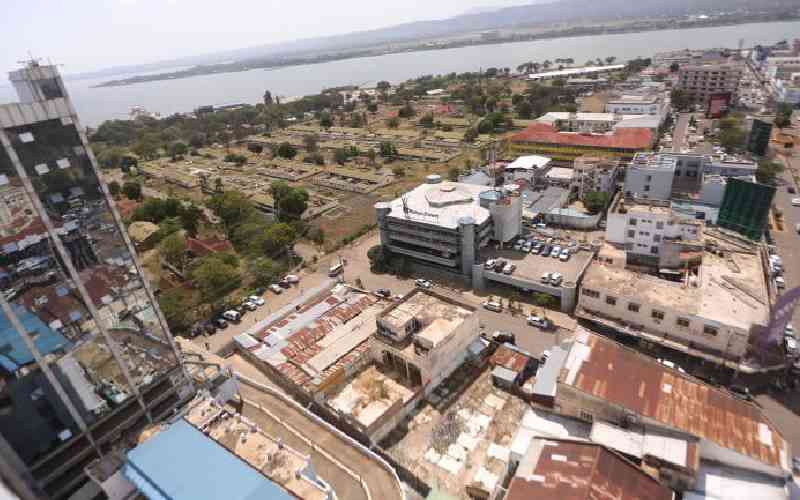×
The Standard e-Paper
Kenya’s Boldest Voice

Aerial view of Kisumu city on August 30, 2023. [Collins Oduor, Standard]
Kanyakwar, located at the peaks of Riat Hills in Kisumu, is among the best places to catch a view of the majestic Lake Victoria, or Nam Lolwe, as the locals call it, and of Kenya's third-largest city, which kisses the lake from all directions.